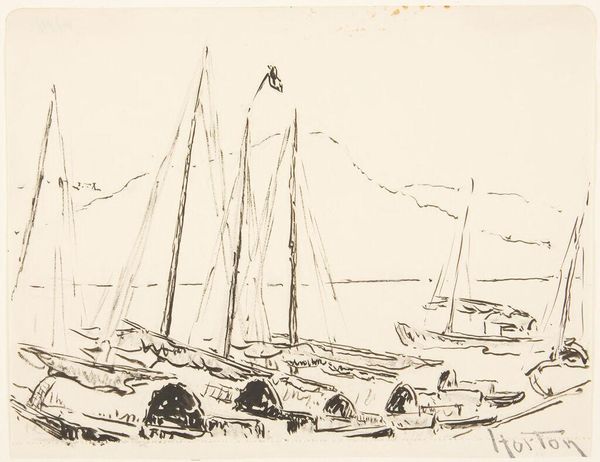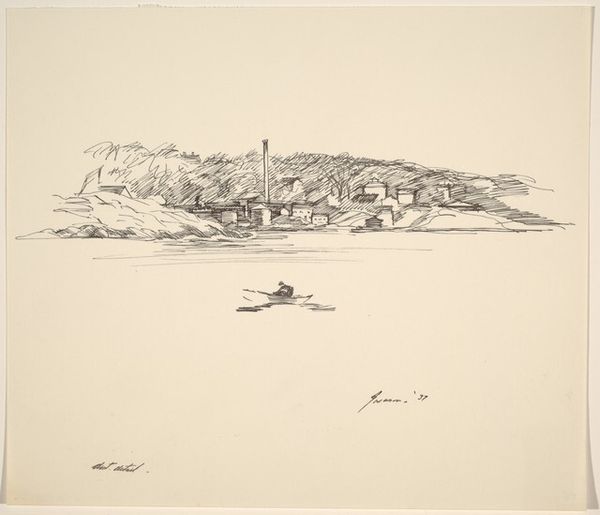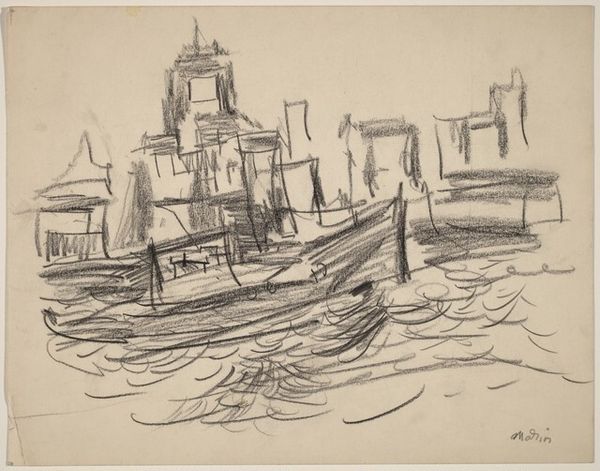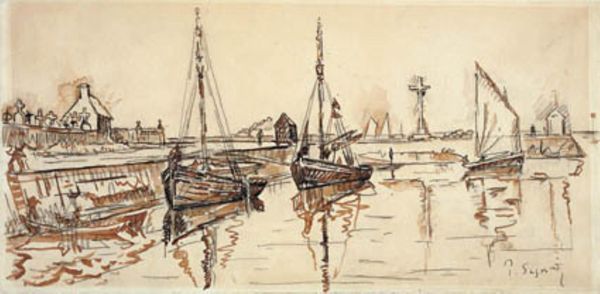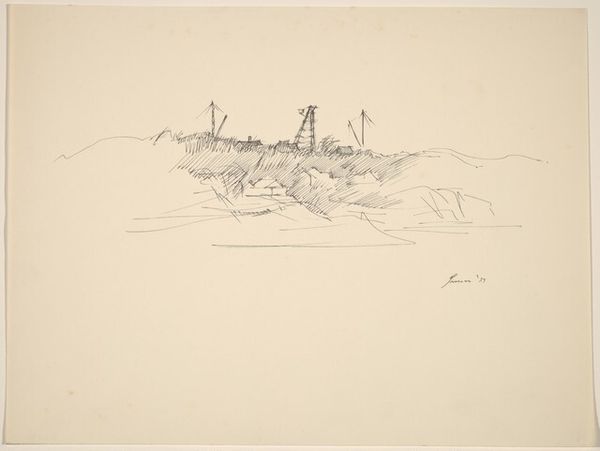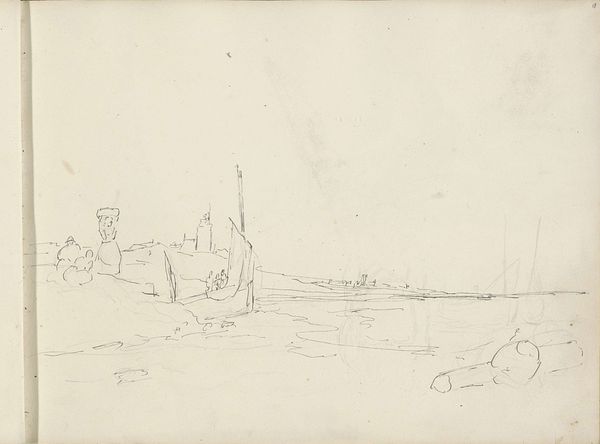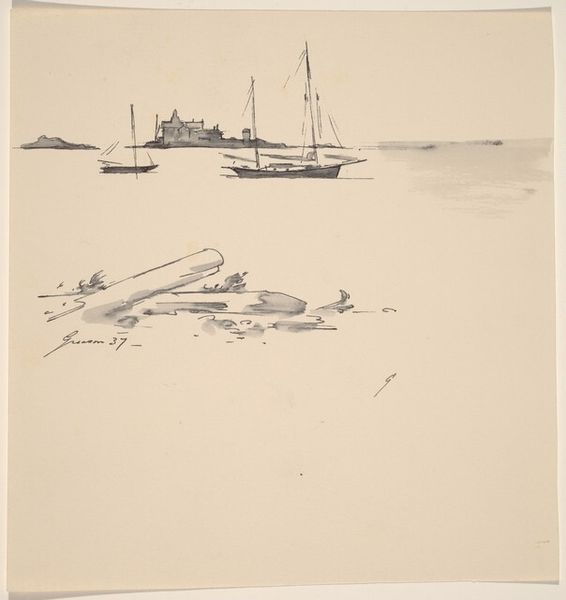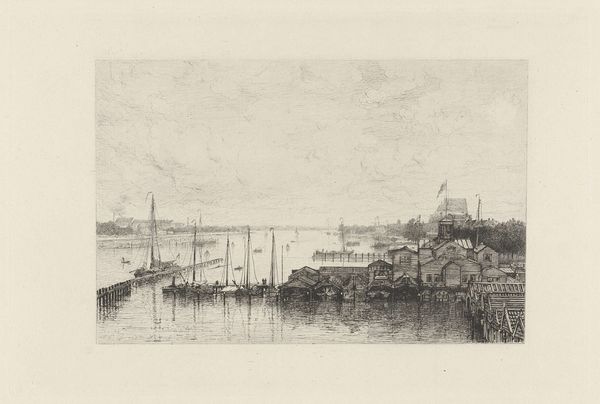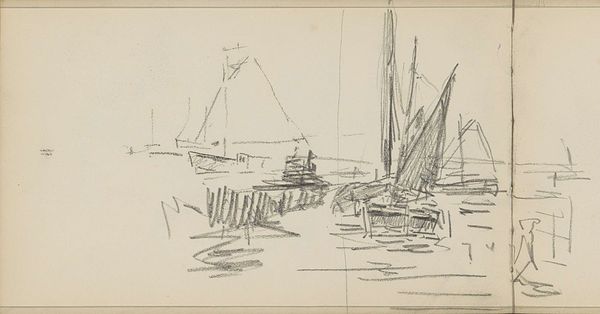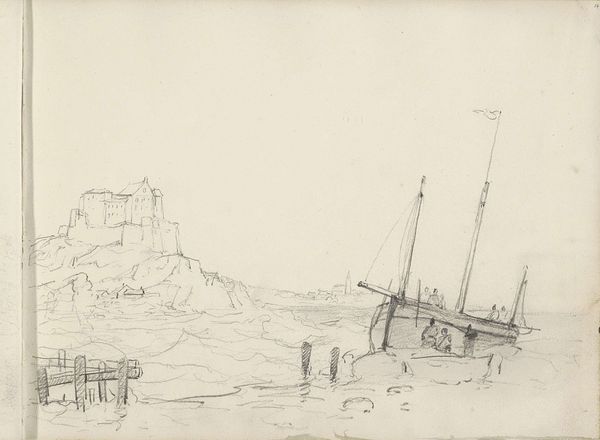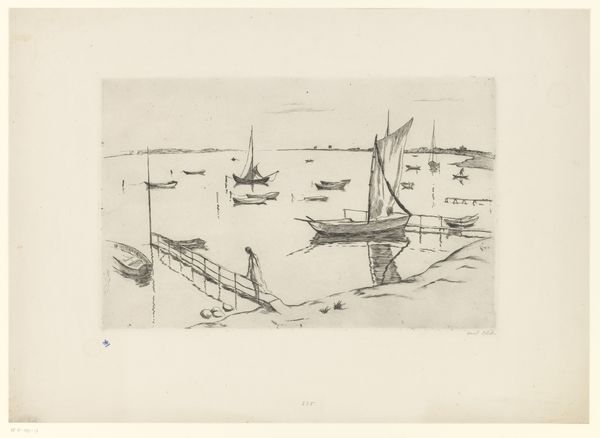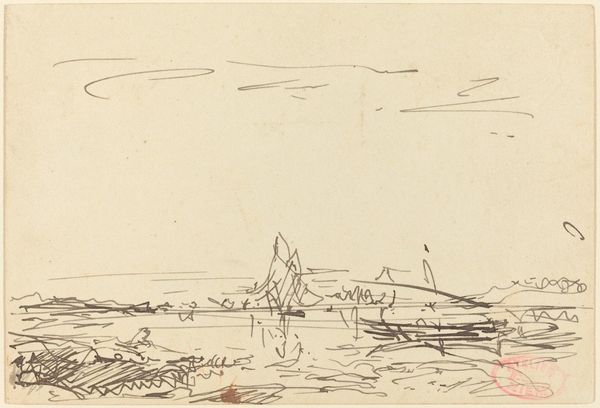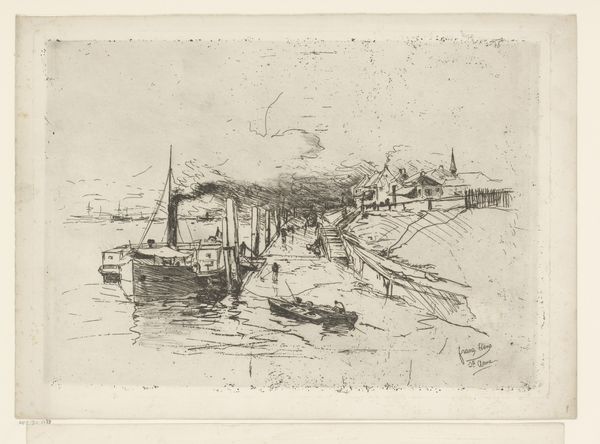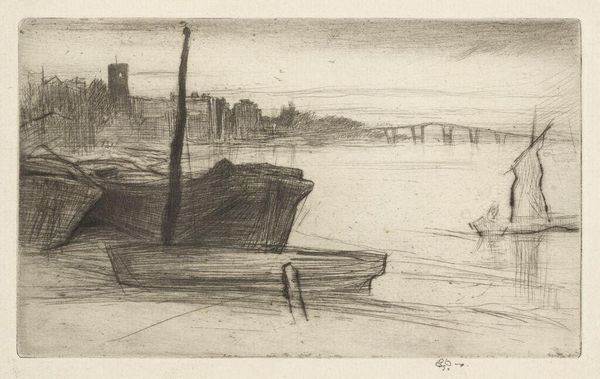
drawing, ink, pencil
#
drawing
#
ink drawing
#
pen sketch
#
pencil sketch
#
landscape
#
etching
#
ink
#
pencil
#
cityscape
Dimensions: overall: 25 x 32.6 cm (9 13/16 x 12 13/16 in.)
Copyright: National Gallery of Art: CC0 1.0
Curator: Ah, I’m immediately drawn to the tranquility here, wouldn't you say? Such sparse yet confident lines, it feels both ephemeral and enduring. Editor: Well, let's anchor ourselves. We're looking at Donald Carlisle Greason's 1937 drawing, "South Dartmouth, Massachusetts." It's rendered in ink and pencil, capturing a serene coastal scene. It reminds us that seemingly tranquil coastal towns are situated upon often-turbulent socio-economic histories, class divisions that perhaps this work elides? Curator: It's true, the scene does feel almost idyllic. Perhaps intentionally so? I wonder, what did it feel like for Greason himself, recording this image of a moment in this place? I feel a sense of wanting to both belong to and escape from this view, and that’s such a complex dance. Editor: I think this piece prompts a critical engagement with the landscape genre itself. We must ask, what’s *not* depicted? Whose stories are marginalized by this seemingly innocent view? Were indigenous communities displaced by this coastal town, and how might we bring such issues into dialogue with the work at hand? Curator: Good question. Look, it’s definitely a selective view. But also…I can almost smell the sea air. He’s distilled the essence of a place with such economy! The boats at rest, the hint of a lighthouse—they resonate. There’s some gorgeous atmospheric perspective happening as the land recedes to the horizon. Editor: And, from a feminist perspective, how is landscape often gendered as feminine, and thus, available for appropriation and even violation? Greason’s choice of medium further raises questions, with the stark contrast potentially obscuring as much as it reveals. This tension between clarity and obscurity begs questions of narrative power and erasure. Curator: That’s fascinating. Perhaps it also represents a certain yearning? An attempt to grasp something elusive, before it shifts and changes like the tide? To draw the shape of home before the home, and those feelings of home, have shifted beyond our imagining. I always feel as if my favorite pieces are just slightly, and deliberately, "out of focus," like memory itself. Editor: Precisely. Greason offers a valuable reminder of art's capacity to not just mirror our reality but invite critical introspection concerning identity, history, and even the act of looking. It can and must challenge the viewer to see with intentionality. Curator: A lovely push and pull here—a dialogue—then, between form, place, time, and meaning. Thank you. Editor: Indeed.
Comments
No comments
Be the first to comment and join the conversation on the ultimate creative platform.
